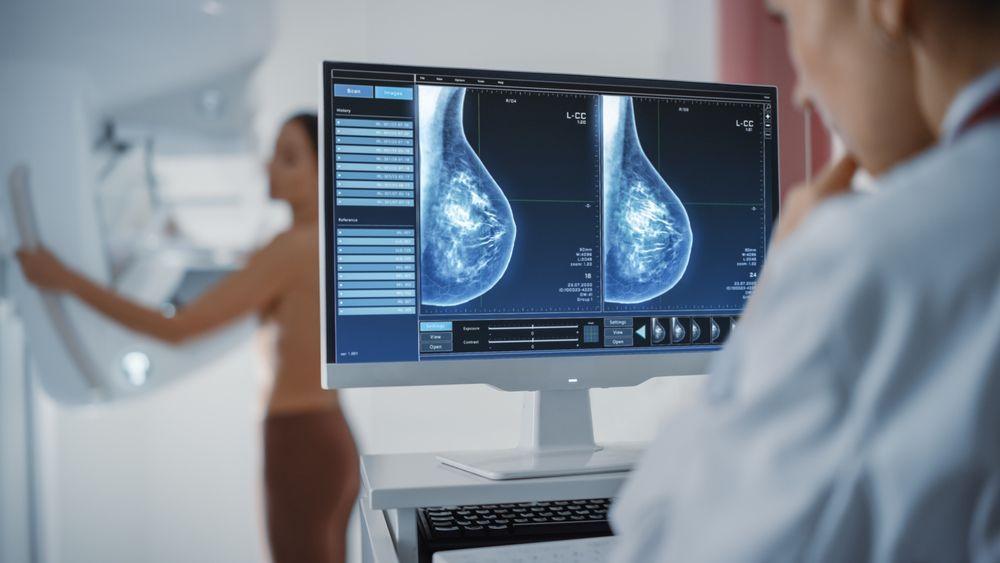Recruiter Finds a Promising Job in UAE For German Orthopaedic Surgeon
This is a subtitle for your new post
Background
Dr Philipp Berdel graduated in medicine from the University of Bonn in Germany and obtained his Facharzt (German Board Certification) in orthopaedic surgery. He embarked upon highly specialised training in the relatively rare fields of orthopaedic oncology including paediatric orthopaedic oncology.
Finding options for career progression in Germany limited, he sought fresh challenges and approached Odyssey Recruitment for guidance. Our recruiter sought to understand his career and lifestyle goals and designed a job search strategy. Through personal contacts, the recruiter came to know of an orthopaedic department chief surgeon in Abu Dhabi who was seeking highly specialised orthopaedic surgeons to build a premier orthopaedic service across Abu Dhabi and Al Ain.
An introduction was made and Dr Berdel was flown to Abu Dhabi for a round of interviews, meetings and site visits culminating in a job offer. Since joining SEHA's Orthopaedic Service in Al Ain, he has developed from scratch a paediatric orthopaedic and oncology service in Al Ain, brought it up to Joint Commission International (JCI) standards and introduced some highly innovative techniques and treatments, available for the first time in the UAE.
Discussion
Q: How did your move to Al Ain come about?
Philipp Berdel: I’m originally from Germany, however a couple of years ago my career back home became kind of stuck. I’m working in a small field, orthopaedic oncology and paediatric orthopaedic surgery, which is not like spinal surgery, trauma or arthroplasty. In Germany if you want to become the head of a department your main field should be in this sector, so my chances of stepping forward were only minor. I had to either stay in the position I was in at the time, or do something different.
I started to look around, then over the borders of Germany, into Europe and beyond. I found some interesting positions advertised, and applied for them, and through this I got in contact with Odyssey. They managed to arrange an interview down here, and I had the interview and six months later started work.
Q: What really attracted you to the Emirates?
Philipp Berdel: The chances of further development in my field became limited, and there is this hierarchy in Germany which is different to the British system. There is the head of department and then, you would call them consultants here, but they don’t have really the power to take their own decisions, they have to present all of their cases to the head of the department, and he has to make the final decision. He says if he agrees to your plan or not, and in the end it has to be done in the way he wants.
This has an advantage in that he has the final responsibility because if something goes wrong, it’s on him and not so much on you. This is a good thing. But on the other side as you grow older and more experienced you want to do it in the way you think is best, and you don’t want to ask another person about their ideas. It’s nice to discuss these cases with your fellows, but you get their ideas as advice, and not as an order.
This is the huge difference, so this is one of the interesting things which made me think again. I was tired of not having my own treatment plans to follow based on what I thought would be best for the patient.
Q: What sort of person would be suited to a move?
Philipp Berdel: We have quite a long education in Europe and in the US. To become a German Facharzt or a fellow it takes a number of years, and our education is very strict, strong and helpful. So if you have worked in that field for a number of years, and by this I would say you should have been a consultant for at least 4-5 years, you have the experience to work in a self-dependent and self-responsible way on your own. Then you can really make the step up and work here by bringing all these things that you have a real expertise in to the country, where it is still mainly missing.
When things got tough most of the patients here in the UAE were sent overseas for treatment, and to my understanding the country has a strong interest in changing this. In offering the treatment here, so they don’t send the patients away anymore, they had to bring the doctors and the facilities here, and due to this I had the luck of becoming part of the healthcare system.
When I came here there was only a really small orthopaedic oncology sector in existence. To build this up in the hospital where I was positioned was just nothing, because everything I did was an improvement. The last orthopaedic oncology surgeon in my position left four years before I arrived, so there was a real lack of treatment for patients with these diagnosis.
We could start from the beginning which is a challenge, if you are placed in a position and they are telling you ‘we just have nothing’, you can go wild with your ideas, do whatever you think is reasonable, and build it up from scratch.
Q: What advice would you give to people considering a move?
Philipp Berdel: The recruitment process here is long and challenging. You need to be patient. In my situation all the first steps, like the arranging of the interview, telling you where to go, some information about the hospital, what they might be interested in, what they are looking for etc, was done by Odyssey. Then the process just runs for six months, and it’s more like ‘hand in this information, wait for the result, then hand in the next thing.
The first step, to get a foot into the door, is the important thing, because if you send an application down here as you were used to doing in Europe you would never get an answer. You need someone who has contacts.
Q: What are the biggest benefits of living in the Emirates?
Philipp Berdel: Working here of course, because you can really do what you have always wanted to. If you have a certain level of experience you can create something which might be a big step forward for this country. I think I can, after four years now, say from my personal experience that we have helped so many people who might’ve been lost otherwise, because if we are not doing it, no one will. That gives you a good feeling.
I have a young family. My wife is here and I have two small children living with me. My wife is a doctor as well, and she can work full-time and we still have a good private life. That’s something that, when I speak with my colleagues back in Germany, is not comparable.
We have a housemaid, we have a big house, we have help in so many ways. If we were still living in Germany then it’s most likely that my wife couldn’t work, because she has to take care of the children, or all the money she was earning would go directly towards childcare, and would be lost. So here she can work, and still have some fun because we have the money to do it. That is the biggest difference.
Q: What challenges have you faced since making the move?
Philipp Berdel: One challenging factor in the Government sector is the bureaucracy, especially in the orthopaedic field where you need a lot of equipment which has to be ordered, because it should be available in the hospital. It takes quite an effort here to arrange all these things, so you’re not able to work in the same way as you were used to working before. This is also quite a new step for me, because you have to become more flexible towards working in a different way and, actually, as much as it was annoying me at the beginning I’m now appreciating it, because it’s given me a complete variety of new skills I didn’t have before.
In the Government sector things may be different to the private sector. We have budgets that we have to work with, so we have to make sure that the kind of treatment we are offering to the patient is covered and available. In my field for example in Europe orthopaedic oncology is very much with prosthetics, which are quite expensive. So if you have a problem with a prosthesis then, in more or less every bigger centre, they can deal with it because they know the system, or they can get it within one or two days and help the patient.
Here I’m treating people from Pakistan and Bangladesh, if they could afford it then I would treat them with one of these prosthesis. Then they go back to their own country, and anything could happen. They are lost. So I changed my way of treatment, I offer less from the European way which is with equipment and prosthetics compared to the biological way. I’m working more with bone, and in as many cases as I can with their own bone grafts for the patients. It is a longer healing process, but if it works they are done and they can go home and have a regular life with, hopefully, less complications and follow up. So this changed my whole treatment plan as I used to have it before, which is exciting for me. I increased the variety of possible treatments that I can offer by 50%.
Q: What are the biggest differences between patients in Europe, and those in the UAE?
Philipp Berdel: In oncology in Europe there is a more educated patient, or type of patient, compared to here. So if something is happening in your body the step the patient has to take to have the idea of seeing a doctor is a very short one. Here it takes the patient, for different types of reasons, a long time for them to decide ‘ok, I should go now and see a doctor, it will obviously not go away by itself’. So I see diseases at a stage which, from Europe, you knew only from old books. This is something that I wouldn't have seen had I stayed.
To treat the type of diseases you are familiar with, in the stage you are receiving them here is challenging. So this was something really interesting. Having to treat them in another way, because you cannot just come from Europe with the way that you were trained there, and put this in this area here, because it’s a different part of the world. It’s not just replaceable. It takes some time to understand this, but if you understand, and if you have the chance to offer a treatment which fits for this part of the world, it’s just perfect.
Q: Would you recommend a move to the UAE to others?
Philipp Berdel: If you want to have a completely new experience, as a step up or something I can recommend it. Coming here has been a great experience for me. You should be aware that you are covered in your hospital, and by your colleagues in Europe in a completely different way than you are here though.
By the time you come here you should be able to work completely on your own, because here it’s your patient and they stick with you from the beginning until the end.
I’ve seen some young colleagues coming post-graduation, and they didn’t stay long. So this is the only thing I would recommend. It’s a great step to widen your horizon, to have a completely new experience, and if you have a young family then this should be absolutely no obstacle. But you should have acquired some experience which takes time, so don’t be hasty. Then you can enjoy it even more when you finally arrive.
Summary
- Orthopaedic surgeons who are skilled in unusual or small fields are prized in the UAE.
- The opportunity to develop new orthopaedic services which permit patients to be treated locally rather than seek treatment abroad has been a game changer for the country
- Orthopaedic surgeons should be experienced and highly competent before seeking jobs in the UAE because the usual team support upon which newly qualified surgeons rely may not exist.
- Clinical practice in the UAE exposes the surgeon to advanced pathologies which he may never encounter in Europe or North America.
If you are interested in finding a medical job in the UAE, register your CV and contact us to discuss your job search.
Advertised jobs can be viewed and applications made by uploading a recent CV.
Share this post on Social Media
Leave a Comment
SEARCH JOBS
Ready for a change? Whether you’re looking for higher compensation, greater autonomy, a better work-life balance, or just a change in scenery, we have job opportunities in wonderful locations across the world. Start your medical or dental job search today and embark on your next career move.
SIGN UP FOR JOB ALERTS
We believe everyone deserves to find their dream job. Be the first to hear about new practice opportunities in exciting locations across the world Simply sign up for job alerts in your chosen field, and we will email you when a new job in your specialty becomes available.
More Insights












